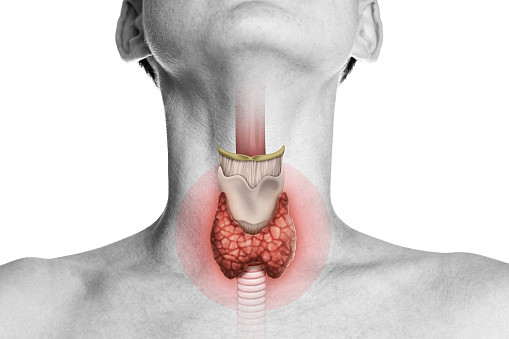Research shows that mental health issues often accompany medical diseases. Particularly, previous research has shown that conditions related to thyroid functioning (e.g., hypothyroidism and hyperthyroidism) have been associated with depression and anxiety.
The thyroid gland
The thyroid gland is a vital gland that contributes to metabolism, growth and development of the body. It helps regulate several body functions by constantly releasing hormones into the bloodstream. Particularly relevant here is its role with serotonin and noradrenalin, which are two neurotransmitters implicated in anxiety and depression.
Triiodothyronine (T3) is a thyroid hormone that controls the level and action of serotonin and noradrenalin, and for example when it is deficient depression and anxiety disorders arise.
Hyperthyroidism
Notably, when the thyroid gland is overstimulated, called hyperthyroidism or Graves’ disease, mental symptoms such as irritability, restlessness, anger, sleeplessness, and emotional instability have been observed. Conversely, it is thought that depression is closely linked to an underactive gland (hypothyroidism).
Interestingly, it has been found that mental health symptoms not only influence the course of Graves’ disease, but they also persist even after normalization of thyroid functioning.
Reference:
Fukao, A., Takamatsu, J., Arishima, T., Tanaka, M., Kawai, T., Okamoto, Y., Miyauchi, A., & Imagawa, A. (2019). Graves’ disease and mental disorders. Journal of clinical & translational endocrinology, 19, 100207. https://doi.org/10.1016/j.jcte.2019.100207

